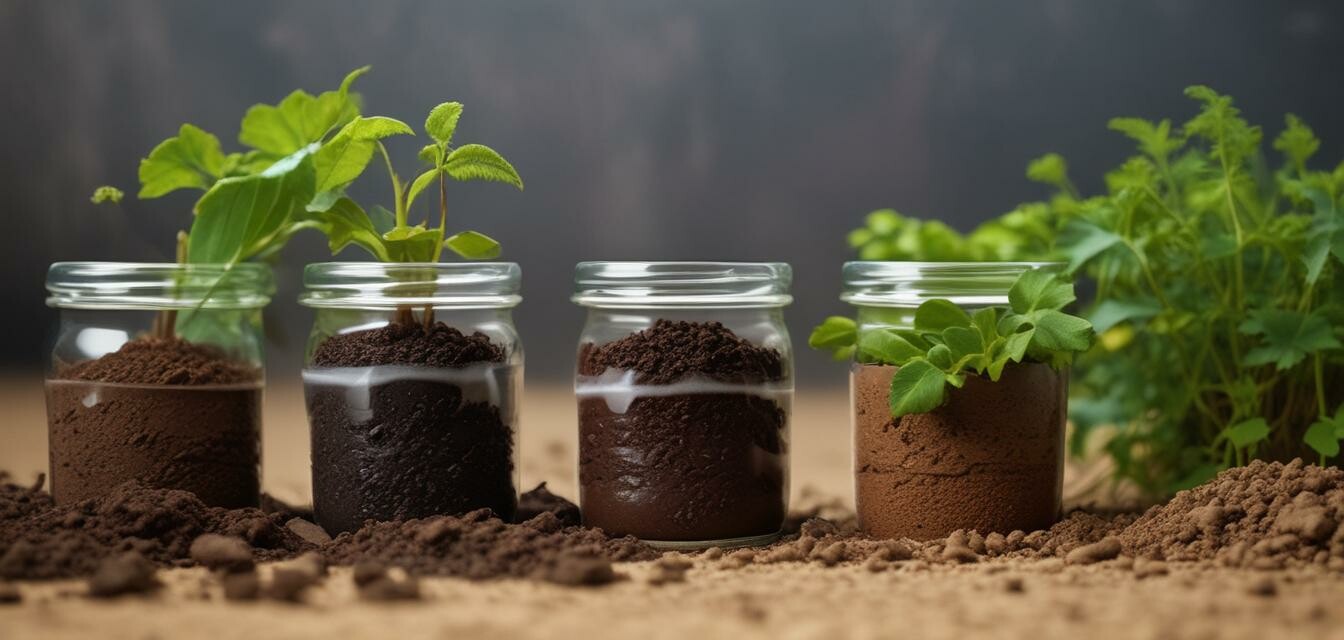
How to Choose the Right Soil for Your Garden
Key Takeaways
- Choosing the right soil is crucial for plant health and growth.
- Different plants require different soil types for optimal growth.
- Consider soil pH, drainage, and nutrient content when selecting soil.
- Amend your soil with organic matter for improved quality.
- Regular testing and maintenance can help keep your soil healthy.
Soil is the foundation of any garden. It affects water drainage, nutrient availability, and the overall health of your plants. Whether you're starting a new garden or looking to improve your existing one, understanding how to choose the right soil is essential. This guide will explore various soil types, their characteristics, and some tips on how to select the perfect one for your garden.
Understanding different soil types
There are three main types of soil: clay, sandy, and loamy. Each type has its own unique properties that make it suitable for different plants and gardening conditions.
| Soil Type | Characteristics | Best for |
|---|---|---|
| Clay | Dense, retains moisture, poor drainage | Water-loving plants |
| Sandy | Loose texture, drains quickly, low nutrient retention | Plants requiring good drainage |
| Loamy | Balanced texture, retains moisture and nutrients | Most plants, including vegetables and flowers |
Characteristics of safe soil
Choosing the right soil goes beyond just the type. Here are critical characteristics to consider:
- pH Level: Most plants thrive in a pH range of 6.0 to 7.5. Test your soil pH regularly.
- Nutrient Content: Quality soil should have organic matter like compost for nutrients.
- Texture: How well does the soil hold water? Aim for a balance of sand, silt, and clay.
Soil amendments for enhanced quality
Sometimes, the soil you start with isn't perfect. Here are some common amendments to consider:
- Compost: Improves nutrient levels and encourages healthy plant growth.
- Peat Moss: Adds organic matter and helps soil retain moisture.
- Sand: Enhances drainage for heavy soils.
- Perlite or Vermiculite: Improves aeration and drainage.
Testing your soil
A soil test can provide valuable information about your soil's health. Here's how to test your soil:
- Collect soil samples: Take samples from different areas of your garden.
- Send to a lab: For detailed analysis, consider sending samples to a professional laboratory.
- Follow tests recommendations: Amend your soil based on the results for optimal plant growth.
How to maintain healthy soil
Once you've chosen the right soil for your garden, it's vital to maintain its health. Here are some tips:
- Regularly add organic matter like compost to feed soil microbes.
- Avoid over-fertilizing which can disrupt the soil's natural balance.
- Practice crop rotation to prevent soil depletion.
Common gardening mistakes related to soil
Many gardeners make mistakes regarding soil selection, which can lead to poor plant health. Here are some to avoid:
- Not testing soil before planting.
- Using the same soil over multiple planting seasons without amending it.
- Ignoring drainage issues, especially in clay soils.
Conclusion
Choosing the right soil is imperative for achieving a successful garden. Understanding the different types of soil and their properties will help you make informed decisions that cater to your specific plants. Don't forget to amend and maintain your soil for ongoing health and productivity. By investing time and effort into your soil, you'll elevate your garden experience and yield stunning results.
Tips for beginners
- Start with loamy soil if unsure – it's versatile.
- Perform regular soil tests to understand nutrient levels.
- Mix different soil types for unique plant requirements.
Pros
- Healthy soil promotes vibrant plant growth.
- Good soil can enhance flavor and yield in produce.
- Understanding soil can reduce costs by minimizing amendments.
Cons
- Initial soil testing and amendments may come with costs.
- Finding the right soil can be overwhelming for beginners.
For more information on gardening tools and materials, check out our Buying Guides!
Explore our range of eco-friendly fertilizers to ensure your soil is well-nourished.
Don't forget to check out our selection of garden tools for all your gardening needs.
Learn more about greenhouses and plant protection to provide your plants with the optimal growing environment.
If you're interested in optimizing watering, explore our innovative irrigation systems.